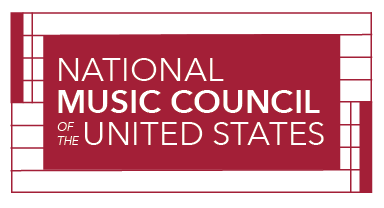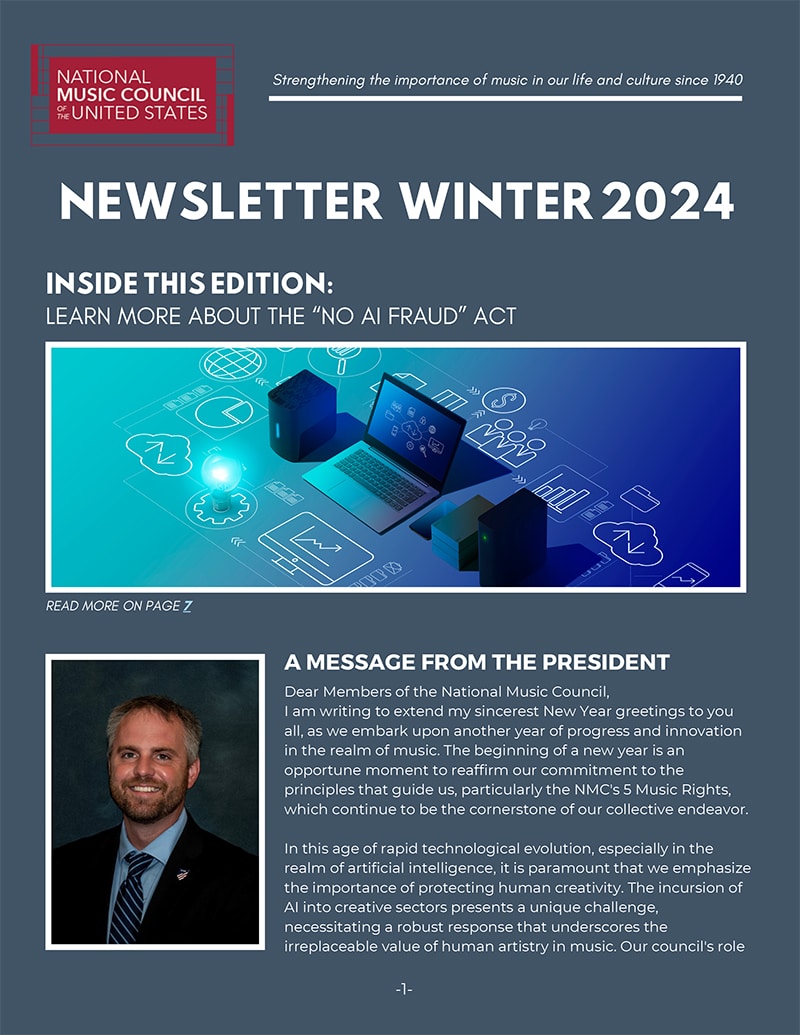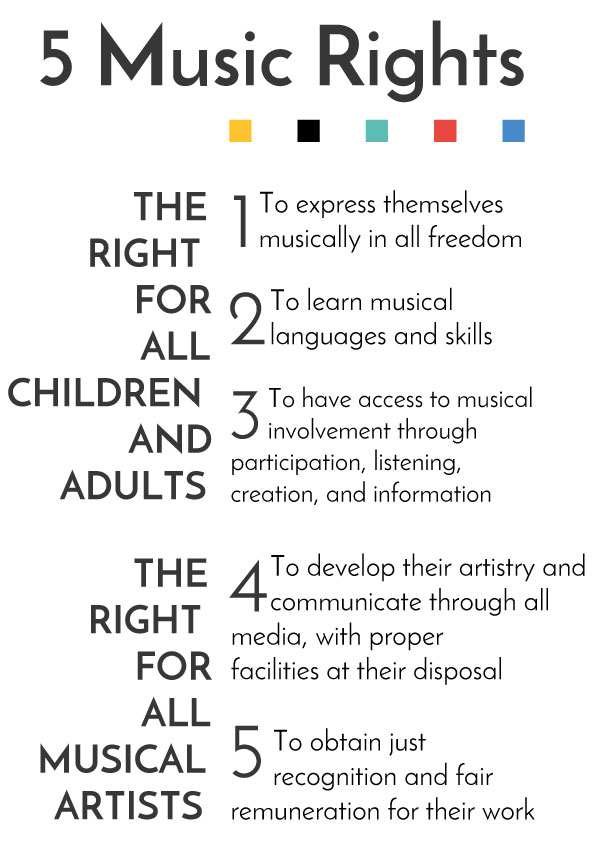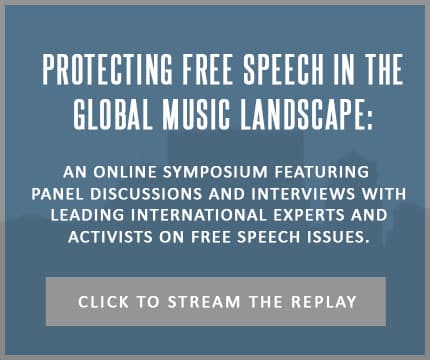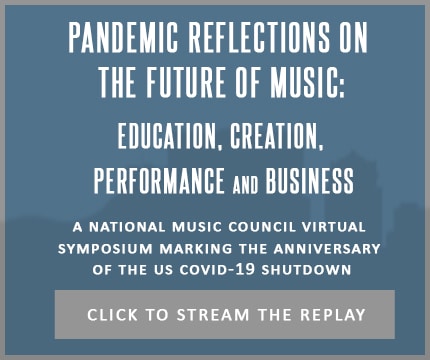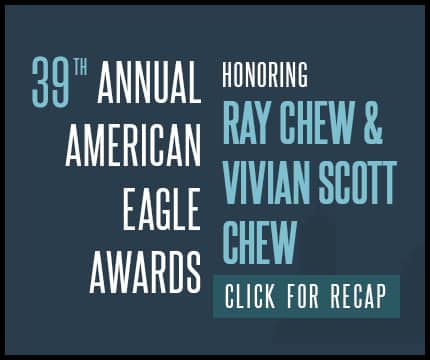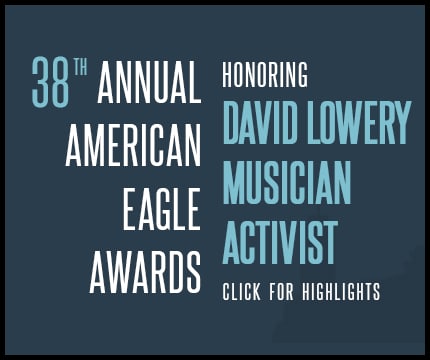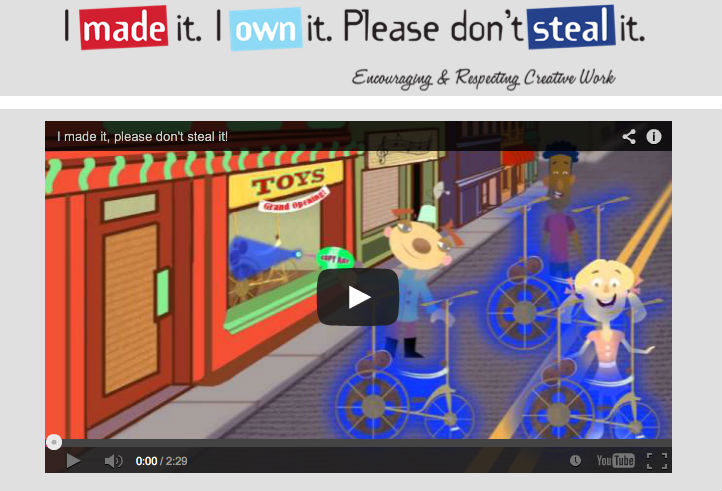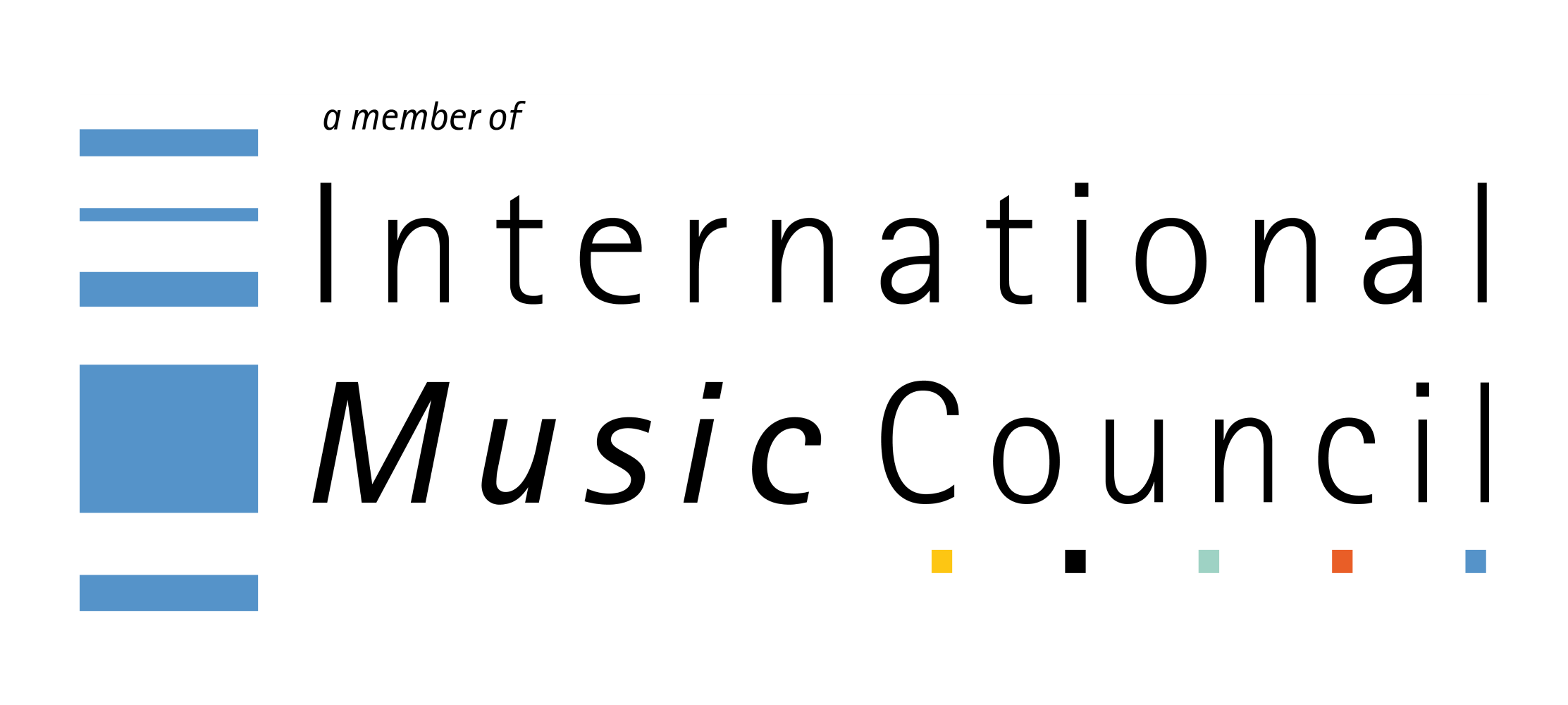A Call to Action
Through its membership in the National Music Council, you are linked to the American music community at large. With the cooperation of its member organizations, the National Music Council promotes and supports music and music education as an integral part of the curricula in the schools of our nation, and in the lives of its citizens. Additionally, the Council provides for the exchange of information and coordination of efforts between its member organizations and speaks with one voice for the music community whenever an authoritative expression of opinion is desirable.
It is not often that the National Music Council calls upon the individual members of its constituent organizations to take specific action, but circumstances at this time compel me to address you directly in order to ask for your assistance. The future of America 's composers and songwriters –and by extension the future of American music itself– has never faced a graver threat than the one it is facing today from illegal Internet file-sharing. For every member of the extended U.S. music community, from creators, to educators, to music-lovers, the time to raise our voices in support of America 's music is now!
Enormous damage is being inflicted on our industry by illegal Internet activity. Some two billion incidents of electronic music shoplifting occur each month. This rampant piracy is not only displacing sales of music through normal retail chains, but also strangling the growth of innovative and licensed Internet music services, which cannot compete with “free†access.
The result has been an economic downturn of more than thirty percent across the music community, undeniably traceable in significant part to this epidemic of theft. Thousands have lost their jobs, and many thousands more are about to. As one bleak example among many, Music Row in Nashville –the most concentrated gathering place for songwriters of all genres in the country– is growing quieter each month as “for rent†signs replace ongoing businesses at an increasing pace.
Yet, despite these very troubling signs, the media unfortunately persists in portraying the issue of illegal Internet activity most frequently as a “victimless crime,†a David and Goliath tale of large corporations versus consumers where those suffering the most –creators and small businesses– are thoroughly ignored. That is a situation that cannot be permitted to continue. The message that we must deliver now to our Congressional representatives, to the White House, and to the public is that the real victims of electronic music theft are individuals at every economic level:
— Songwriters
— Recording Artists
— Musicians
— Independent Retailers
— Hundreds of Thousands of Americans employed in supporting positions throughout the music industry, and their families
Without the means to support themselves through their music, creators will inevitably be forced to abandon their careers. The end result will be the severe diminution of American musical creativity and innovation, a narrowing of musical diversity, and eventually the destruction of the American music community itself (with severe economic ripple effects throughout the intellectual property community that comprises 5% of the U.S. GNP spread among tens of thousands of large and small businesses). That bleak future is a calamity that we urge you to help us prevent.
Please join us by acting now! A letter to your senators and congressional legislators would make a significant impact. First, find the address of your local congressman or senator. Then, fill in the sample letter below. Please feel free to use it in its entirety or as you see fit. To get more facts on illegal downloading, you may also want to visit www.musicunited.org and www.whatsthedownload.com.
I thank you for your time and effort on this important issue.
Dr. David Sanders
Director, National Music Council
Sample Letter
Dear (Elected Official's Name),
I am writing to you today to urge you, as my elected official, to support efforts by the recording industry and others to stop music piracy. Although some people might argue that a few kids sharing music with their friends over the Internet isn't the same thing as pirating CDs or illegally recording and selling live performances, they're wrong. The bottom line is, illegal music downloading is theft, and it contributes significantly to the multi-billion dollar losses that piracy in all its forms costs the industry each year. During the last three years, music sales at mid-year have dropped 31 percent. These losses have a significant impact on people like me who are associated with the recording industry and rely on it for our livelihood.
The recording industry isn't just high-level executives or multi-platinum performers. It's the person who answers the phone, the technicians who maintain the equipment, the designers who create packaging, and the ninety five percent of musicians who struggle to make ends meet. In a larger sense, it's also the owner and employees of the local music store, the truck driver who delivers CDs from the warehouse to the retail outlet, the legitimate online merchant struggling to compete in the world of e-commerce, and the law-abiding consumer who obtains his or her favorite music the right way. All of these people are harmed, and in fact thousands have been laid off in the past few years, by the dishonesty of a few who believe that music theft is somehow justifiable.
Every minute that a copyrighted work remains available to millions of P2P users on the Internet, our livelihoods are put at stake. Congress assured that copyright owners could prevent anonymous theft of their works on the Internet with privacy protection for consumers in the Digital Millennium Copyright Act (DMCA). Some Internet Service Providers now want to repeal that provision – preventing us from stopping the damage expeditiously. We oppose that repeal and ask for your help in stopping any legislation that would upset the balance Congress struck in the DMCA.
Please don't listen to those who claim that downloading music from the Internet illegally is a victimless crime. Whether those who engage in piracy commit their theft from the privacy of their bedroom or in a warehouse, they are breaking the law, and they should be held accountable.
Sincerely,
